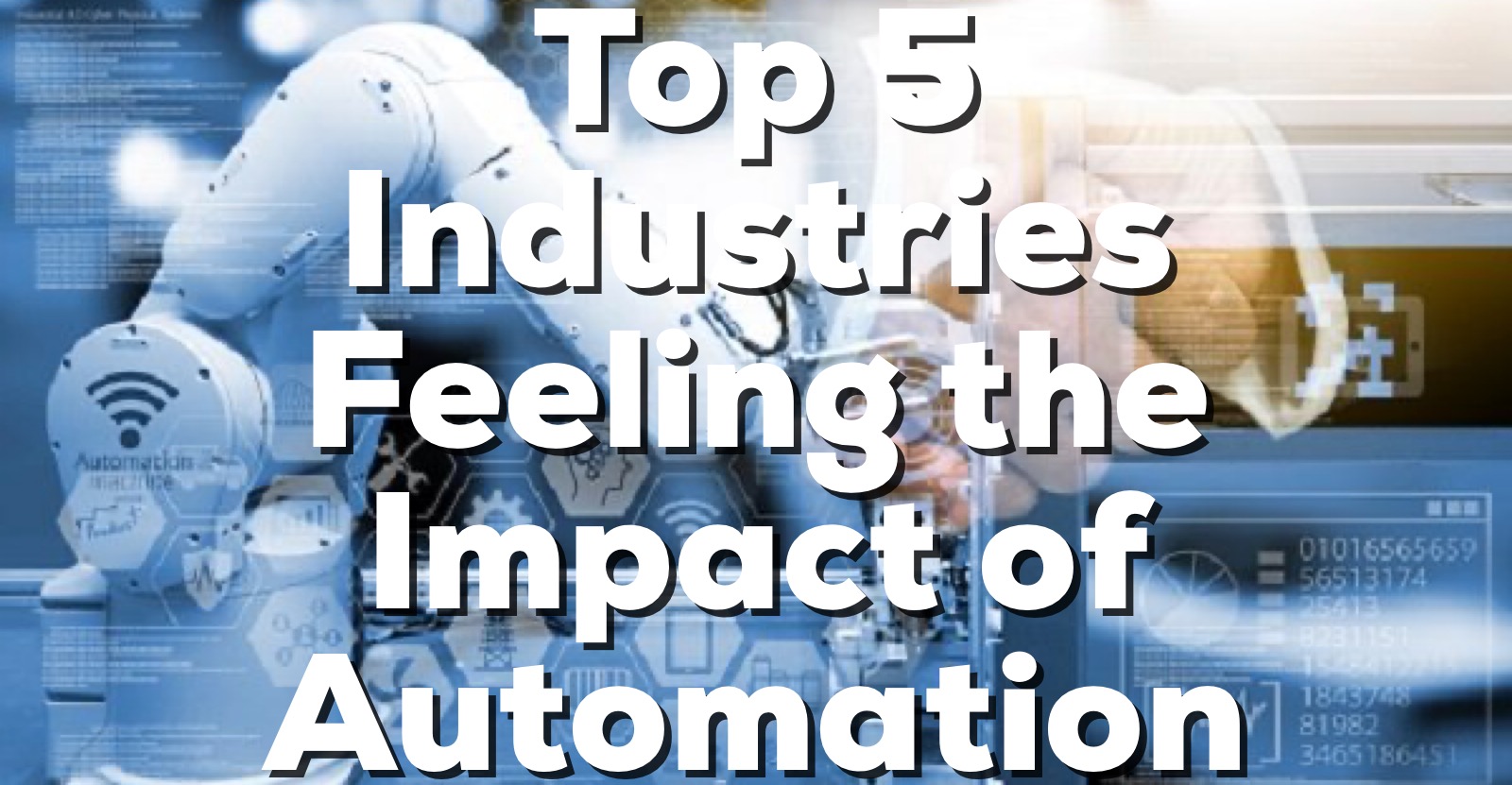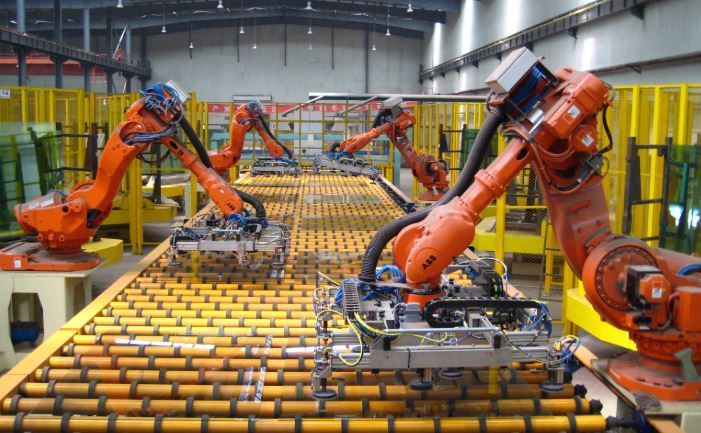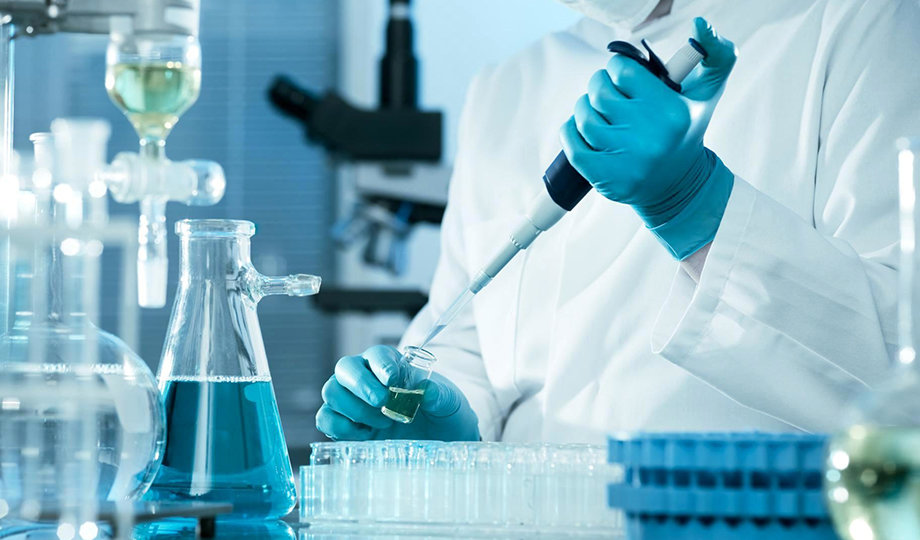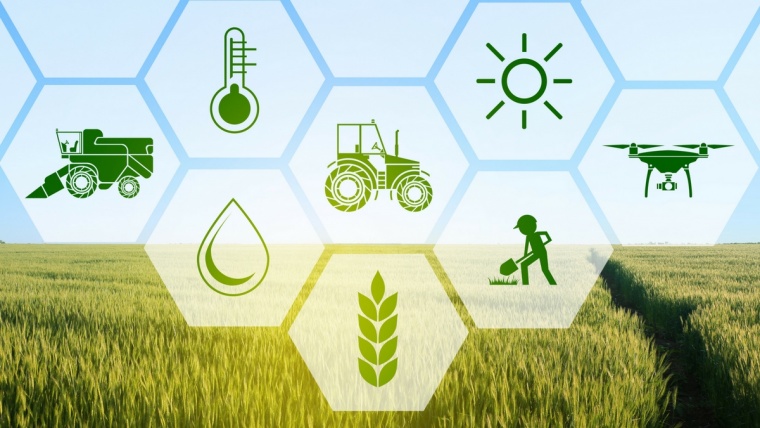Top 5 Industries Feeling the Impact of Automation
1 December, 2020 | Manufacturing, Industrial Manufacturing, Automation, Automation Systems, Medical Research, Agriculture, Farming

It’s no secret that the world is becoming more automated every day. Technologies like robotics and artificial intelligence (AI) allow companies in a variety of industries to take advantage of automation.
Still, some industries are feeling the effects more than others. The COVID-19 pandemic has also played a role. It has accelerated the adoption of automation in many industries, including those discussed below. These are the top five industries that are being affected by new automation technology.

Manufacturing
Listing manufacturing here almost seems like a joke. It is clear that automation is the future of manufacturing. Large plants are now almost exclusively run by automated equipment and continue to get smarter every day.
Manufacturing across every sector benefits from automation since it speeds up production, improves safety, and reduces costs. Although many people fear that “robots are stealing all the jobs,” studies have shown that automation isn’t responsible for job losses.
Instead, manufacturers that upgrade their operations to include automation are able to provide better-paying, tech-focused positions for their employees. New automation technologies will continue to have a big impact on manufacturing in the coming years.

Medicine and Medical Research
Automation and medicine don’t seem to go together at first glance. After all, healthcare is still (and probably always will be) a human-driven sector. That being said, the COVID-19 pandemic has unveiled countless ways that automation can be useful.
Typical medical research projects consist of massive datasets, complex molecular modeling, and in-depth statistics. Automating these things helps speed up research and leads to more timely medical breakthroughs.
Meanwhile, surgical robots continue to have a significant place in the operating room. They allow surgeons to perform lifesaving operations with ease and won’t be going away anytime soon. There is plenty of room for medical robotics to keep growing in this decade and beyond.

Agriculture
Perhaps one area that stands to gain the most from automation is agriculture. Humans have been growing food the same way for hundreds of years. However, those practices are quickly becoming unsustainable as the global population skyrockets.
Automation is an ideal solution that helps farmers improve their yield without having to turn to things like genetically modified organisms. Farming robots excel at mundane jobs like pulling weeds and harvesting crops. Meanwhile, soft robots along the manufacturing line are getting better at packaging foods and getting them to consumers in a timely fashion.
New state-of-the-art farming systems take things even further. By moving away from the ground and towards hydroponic, vertical-farming solutions, humans could soon have a viable solution to world hunger. If so, it will be attributed to automation.
Transportation
There has been a lot of talk about self-driving cars in the past few years. A number of companies are extremely close to rolling out fully automated vehicles to everyday consumers. That will mark a major milestone for automation and it is expected to occur within the decade.
Automation in the transportation industry isn’t just limited to cars, however. Researchers have found ways to automate trains, boats, and even some planes. Those advancements will redefine how we move from place to place in the coming years.
Logistics
Amazon has singlehandedly revolutionized the logistics industry. By making two-day deliveries the gold standard, it forced other companies to adopt automation in their operations. It simply isn’t possible to fulfill a high-volume of orders without using things like AI and robots.
Amazon proved that it is possible and now the rest of the industry is following suit. Expect things like blockchain and automated drone deliveries to define the next few years of logistics.










